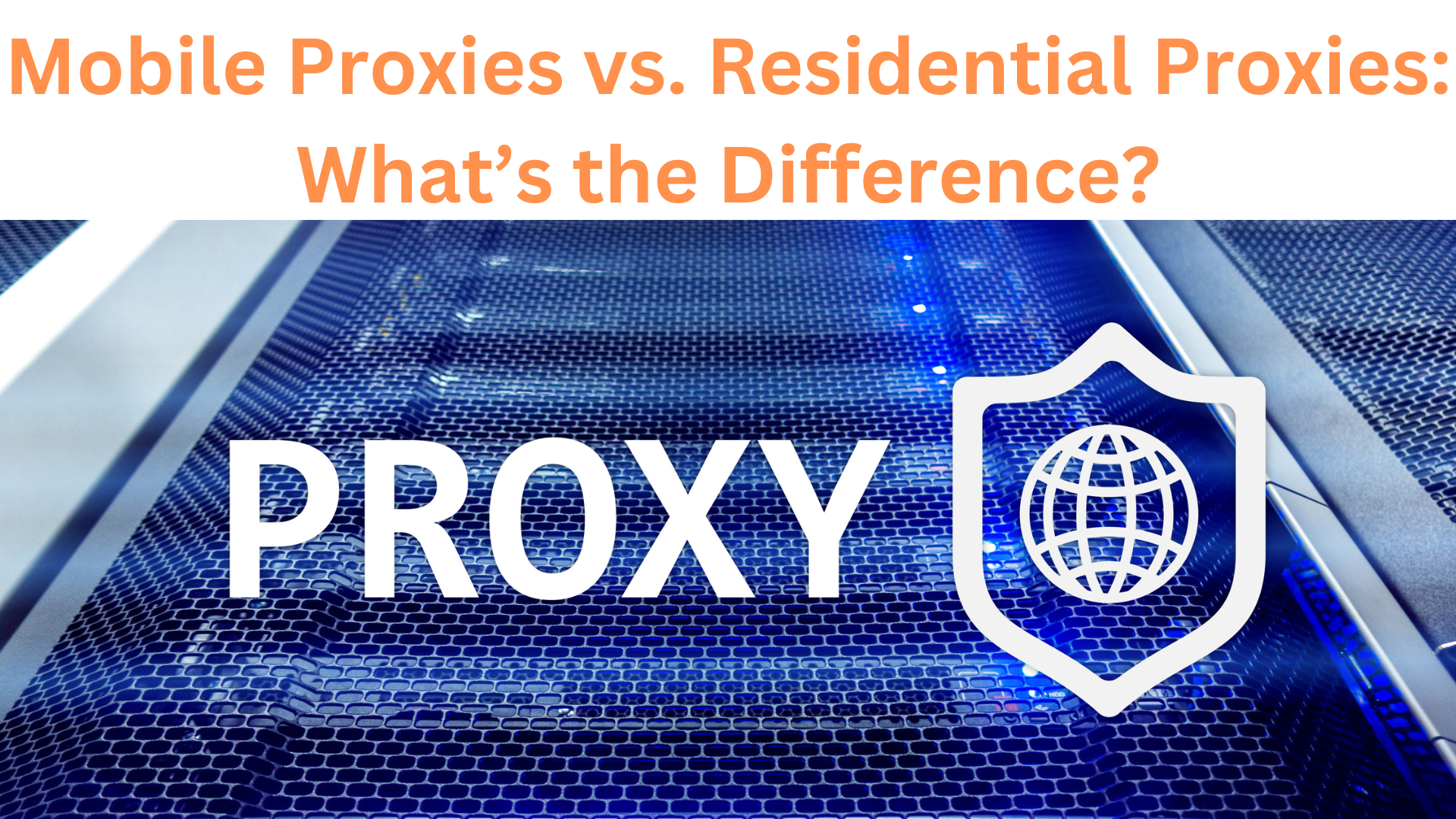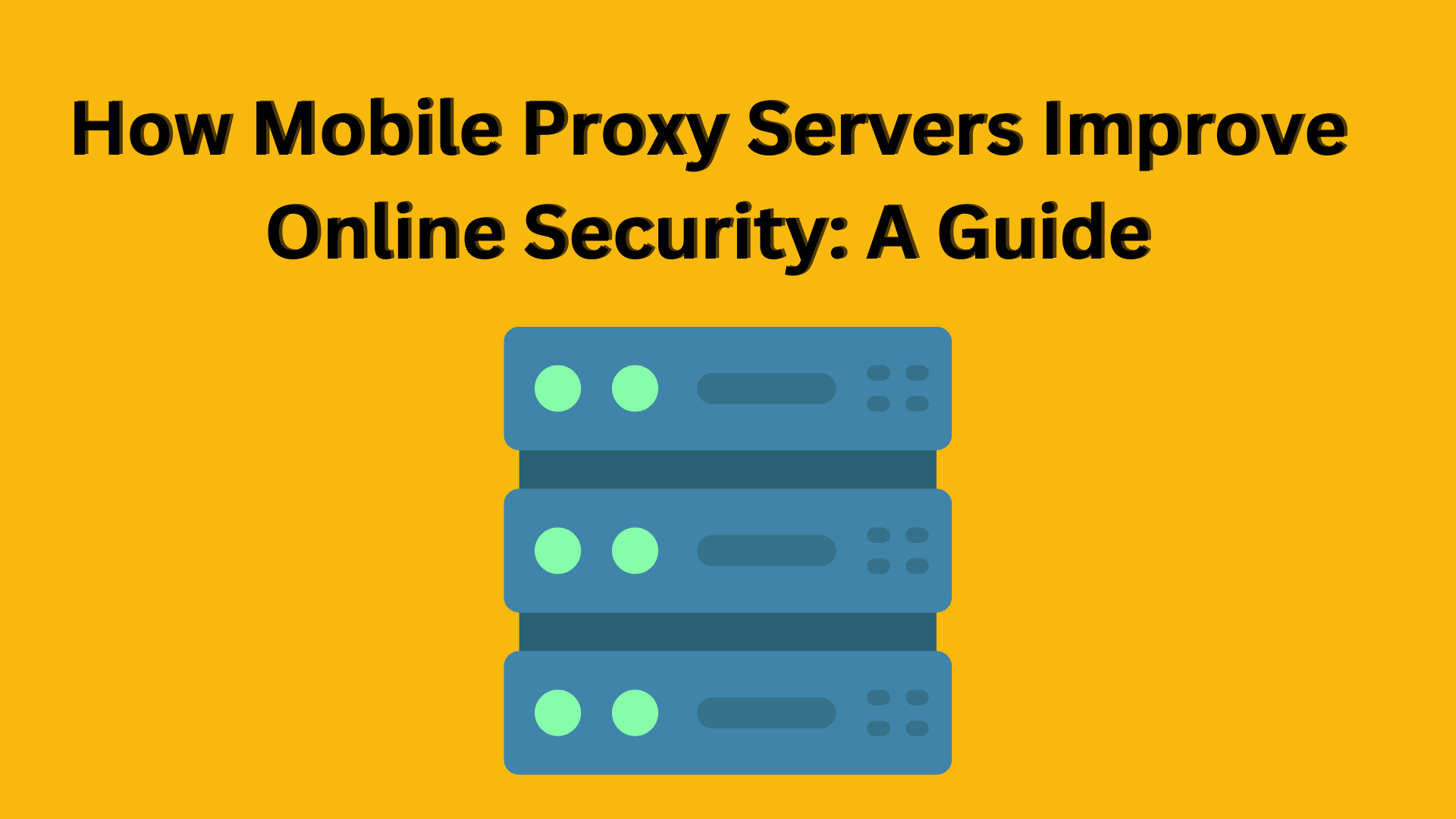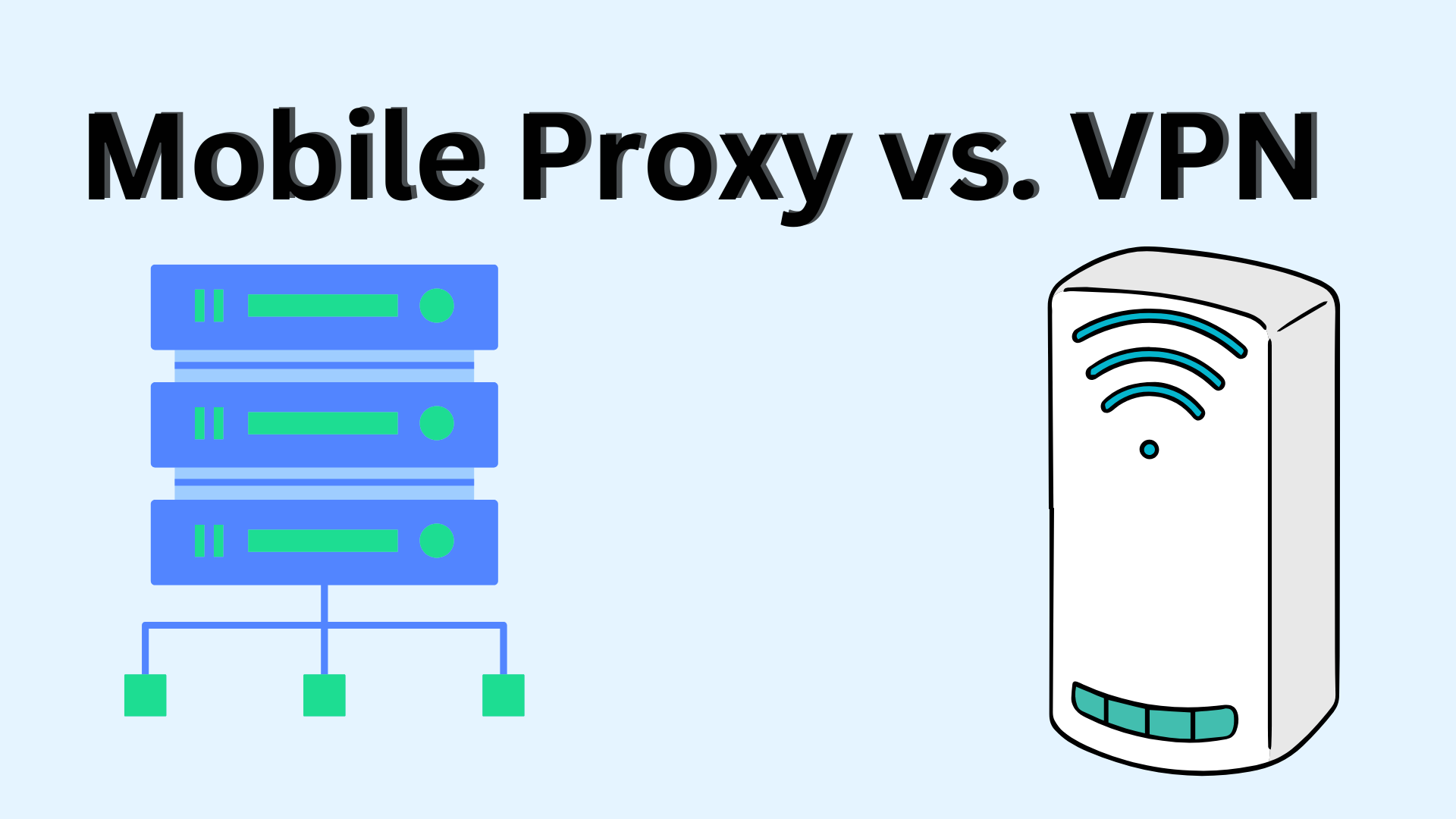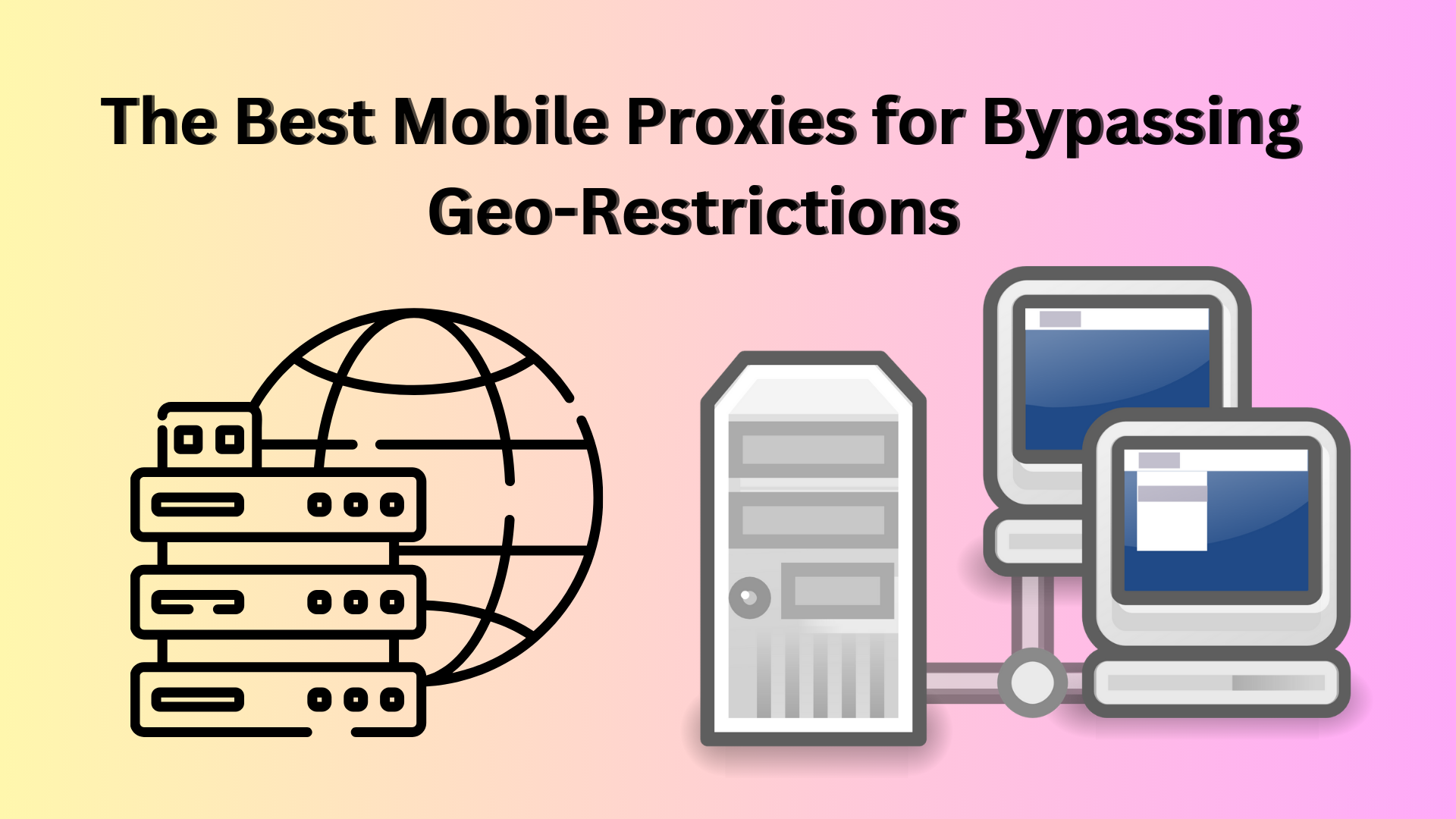Introduction
In the realm of online privacy and data access, proxies play a crucial role in safeguarding anonymity and accessing restricted content. Among the various types of proxies available, mobile proxies and residential proxies are two popular choices. While both offer unique advantages, they also come with distinct characteristics that make them suitable for different applications. In this article, we’ll delve into the differences between mobile proxies and residential proxies, helping you understand which is best for your needs.
1. What Are Mobile Proxies?
Definition and Functionality
Mobile proxies use IP addresses assigned by mobile carriers. These proxies route your internet traffic through mobile devices connected to cellular networks. Mobile proxies are characterized by their dynamic IP addresses, which frequently change to mimic the behavior of real mobile users.
Key Features
- Dynamic IP Rotation: Mobile proxies offer a rotating IP address system, where IPs change frequently to enhance anonymity.
- Mimic Real User Behavior: By using mobile IPs, these proxies emulate the behavior of genuine mobile users, reducing the likelihood of detection.
2. What Are Residential Proxies?
Definition and Functionality
Residential proxies use IP addresses assigned by Internet Service Providers (ISPs) to real residential homes. These proxies route your traffic through residential IPs, which are associated with real users and are generally perceived as more trustworthy by websites.
Key Features
- Static IP Addresses: Residential proxies often provide static IP addresses that remain the same, offering consistency for applications requiring stable IPs.
- High Anonymity: They offer a high level of anonymity and are less likely to be flagged as proxies by websites due to their association with real residential addresses.
3. Key Differences Between Mobile and Residential Proxies
1. IP Address Type and Rotation
Mobile Proxies
- Dynamic IP Rotation: Mobile proxies frequently change IP addresses to avoid detection and IP bans. This rotation is ideal for tasks like web scraping or accessing restricted content from different locations.
Residential Proxies
- Static IP Addresses: Residential proxies typically offer static IPs that remain the same, making them suitable for applications that require consistent IP addresses, such as managing multiple social media accounts.
2. Source of IP Addresses
Mobile Proxies
- Cellular Networks: Mobile proxies use IP addresses assigned by mobile carriers, coming from mobile devices connected to cellular networks.
Residential Proxies
- Residential ISPs: Residential proxies use IP addresses provided by ISPs to real residential users. These IPs are associated with physical locations and are less likely to be flagged.
3. Anonymity and Detection
Mobile Proxies
- High Anonymity: Mobile proxies are less likely to be detected and blocked due to their dynamic nature and association with mobile devices. However, their frequent IP changes can sometimes lead to inconsistencies.
Residential Proxies
- High Trustworthiness: Residential proxies are often perceived as more trustworthy because they come from real residential addresses. They are less likely to be flagged or banned but may not offer the same level of dynamic anonymity as mobile proxies.
4. Performance and Speed
Mobile Proxies
- Varied Performance: The performance of mobile proxies can vary depending on network congestion and the quality of the mobile carrier. While they generally offer good speed, there may be occasional fluctuations.
Residential Proxies
- Consistent Performance: Residential proxies tend to provide more consistent performance, as they rely on stable residential internet connections. This can result in smoother and more reliable access for certain applications.
4. Use Cases and Applications
Mobile Proxies
- Web Scraping: Ideal for scraping large volumes of data from websites while avoiding IP bans.
- Accessing Geo-Restricted Content: Useful for bypassing geographic restrictions and accessing content available in different regions.
- Managing Multiple Accounts: Beneficial for managing multiple social media accounts without raising suspicion.
Residential Proxies
- Account Management: Suitable for managing social media accounts, as they provide stable IP addresses that mimic real user behavior.
- Market Research: Useful for conducting market research and competitive analysis without triggering anti-bot measures.
- Ad Verification: Effective for verifying online ads from various locations to ensure accurate representation.
5. Choosing Between Mobile and Residential Proxies
Assessing Your Needs
Application Requirements
Determine whether your application requires dynamic IP rotation or consistent IP addresses. Mobile proxies are better for tasks requiring frequent IP changes, while residential proxies are ideal for applications needing stable IPs.
Budget Considerations
Compare the costs of mobile and residential proxies. Mobile proxies may be more cost-effective for high-volume tasks, while residential proxies might come with higher costs but offer consistent performance.
Evaluating Providers
Provider Features
Consider the features offered by different proxy providers, such as IP pool size, performance, support, and pricing. Choose a provider that aligns with your specific needs and budget.
Customer Support
Ensure that the provider offers reliable customer support to assist with any issues or questions that may arise.
6. Conclusion
Mobile proxies and residential proxies each offer unique advantages and are suited for different applications. Mobile proxies excel in providing dynamic IP rotation and bypassing geographic restrictions, while residential proxies offer high trustworthiness and consistent performance for tasks requiring stable IPs. By understanding the key differences between these proxy types and evaluating your specific needs, you can make an informed decision and choose the best proxy solution for your requirements.
FAQs
1. What is the main advantage of mobile proxies over residential proxies?
Mobile proxies offer dynamic IP rotation and are effective for bypassing geo-restrictions and avoiding IP bans, making them ideal for tasks requiring frequent IP changes.
2. Are residential proxies better for managing multiple accounts?
Yes, residential proxies provide stable IP addresses that are less likely to be flagged, making them suitable for managing multiple accounts and avoiding detection.
3. Can mobile proxies be used for web scraping?
Yes, mobile proxies are effective for web scraping due to their rotating IP addresses, which help avoid detection and IP bans.
4. How do I choose between mobile and residential proxies?
Consider your application requirements, such as the need for dynamic IP rotation or stable IPs, as well as your budget and the features offered by different proxy providers.
5. Are there any limitations to using mobile proxies?
Mobile proxies may experience occasional performance fluctuations due to network congestion and the quality of the mobile carrier. Additionally, frequent IP changes can sometimes lead to inconsistencies.





